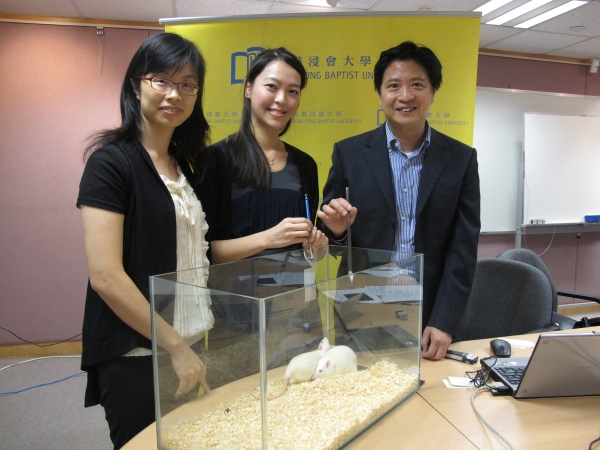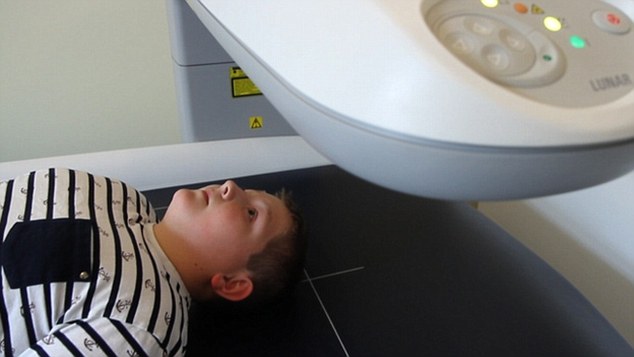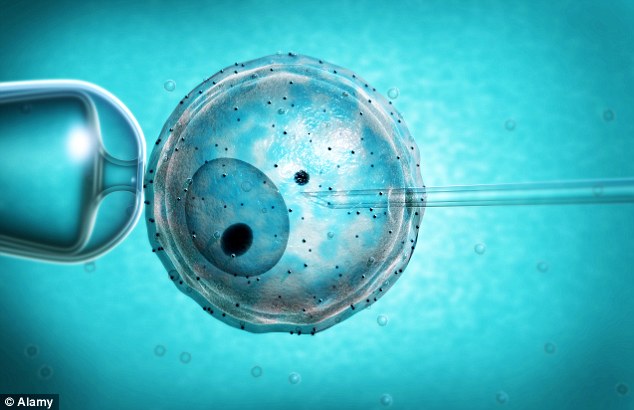Magnetic-tagged Neural Stem Cells Pulled from Live Brains
HKBU Scholars Develop New Personalized Neurological Disorder Therapy
Professor Ken Yung, Professor of the Department of Biology of Hong Kong Baptist University (HKBU) has been leading his research team in developing a new tailor-made neurological disorder therapy in adult mammals which may be applied to the treatment of neurological problems such as Parkinson’s disease. Under the new technique, the team uses magnetic nanoparticles covered with antibodies to safely extract neural stem cells from rats. Neurospheres are successfully generated in vitro from the extracted neural stem cells and the newly generated neural cells can be transplanted back to the same rats. Unlike the use of embryonic stem cells, this novel technique may reduce ethical disputes, and offers a genetically stable means of therapy with lower risks of immune rejection. The research received a provisional patent by The United States Patent and Trademark Office.
(From left) Dr. Li Hung-wing, Associate Professor of the Department of Chemistry, Dr. Cathy Lui, Post-Doctoral Research Fellow, and Professor Ken Yung, Professor of the Department of Biology, hope that the novel technique could be applied to the treatment of neurological problems such as Parkinson’s disease. At present there are no satisfactory treatments that offer an ultimate cure for neurodegenerative diseases like Parkinson's disease and Alzheimer's disease. Most of the current treatments only provide relief from symptoms. Therefore, cell replacement therapy has raised patients’ hopes. Unfortunately, the safety of using embryonic stem cells and induced pluripotent stem cells in treating these diseases is questionable due to the genetic instability of these cells and risks of immune rejections In the study, Professor Yung and his team demonstrate for the first time a simple magnetic separation process for the extraction of stem/progenitor cells from the choroid plexus lining along the subventricular zone of the brain of rats by introducing magnetic iron oxide nanoparticles coated with antibodies (Ab-MNPs) into that specific region of the brain with a superfine micro-syringe. In comparison with using embryonic stem cells and induced pluripotent stem cells, neural stem/progenitor cells offer a remarkably safe, viral-free and novel neural stem cell therapy and regenerative medicine. Neural stem cells possess the unique characteristic of being able to self-replicate and generate the various phenotypes of the nervous system. They can be extracted, modified and re-applied to the same subject. The use of these cells may help develop a new tailor-made neurological disorder therapy. As the cells originate from the patients themselves, the risk of immune rejection can be greatly reduced. This technique is potentially applicable to both young and adult patients. The study also shows that the magnetic microsurgery process is simple and safe to implement on animal subjects. After extracting the stem cells from the nanoparticles, the team found they could grow them in a dish, suggesting they were undamaged by the process. The rats that received the treatment remained alive and apparently healthy. Thus, another novel application of the study is the isolation of multipotent neural stems cells/progenitor from adult brains without killing the animal or inflicting significant damage. Professor Yung believes that the new technology, though in the early stages of development, could potentially have biological and clinical applications, particularly in the area of regenerative medical treatment, from bench to bed. The study entitled “Neural Stem Cells Harvested from Live Brains by Antibody-Conjugated Magnetic Nanoparticles” was published on Angewandte Chemie International Edition. Vol. 52, (2013): 1-6.
|
|
















